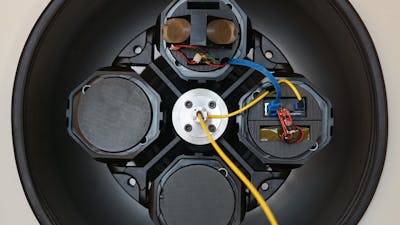Programmable DNA nanoswitches, invented at the Wyss Institute, can now be used in combination with a benchtop Centrifuge Force Microscope (CFM) as a highly reliable tool to observe thousands of individual molecules and their responses to mechanical forces in parallel. By analyzing the responses of single molecules under conditions where they experience such forces, it is possible to develop a better understanding of many biological processes, and potentially, develop more accurately acting drugs and better diagnostics.
From the tension of contracting muscle fibers to hydrodynamic stresses within flowing blood, molecules within our bodies are subject to a wide variety of mechanical forces that directly influence their form and function. But up until now, experimental analysis of single molecule interactions under force have been expensive, tedious and difficult to perform because it has required use of sophisticated equipment, such as an atomic force microscope or optical tweezers, which only permit analysis of one molecule at a time.
By basing this instrument on something that most researchers already have and use — the benchtop centrifuge — we hope to make single-molecule force measurements accessible to almost everyone.
In contrast, the benchtop CFM device – consisting of the CFM unit itself, parts for transmitting the camera signal, and a battery – fits into two standard buckets of a common laboratory centrifuge and is balanced by counterweights in the respective opposite buckets. The technique is highly cost efficient and is positioned to make single molecule force analysis accessible to the entire scientific community, and could be used to advance drug development.
This technology is available for licensing.
